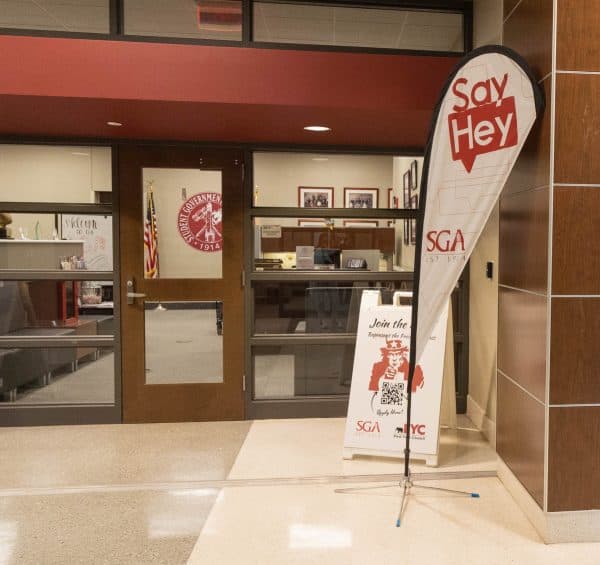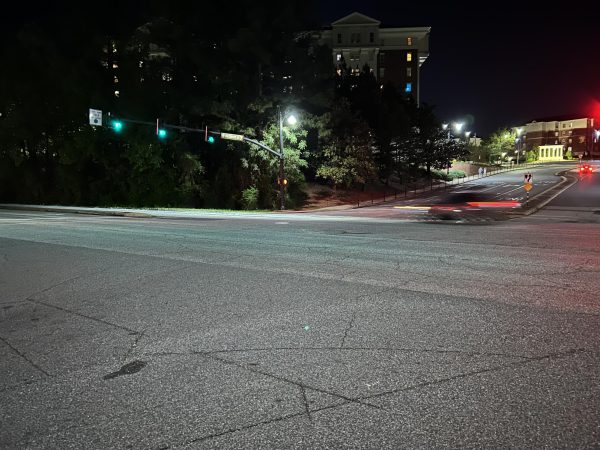Panhellenic pushes for more Greek diversity
September 6, 2018
During her first day of recruitment three years ago, Candace Wilson had concerns. She wondered, “Am I wearing the right dress? Are they going to like me?” She wondered if she would be treated differently because of the color of her skin.
She wondered if she would fit in.
“I’ll be honest with you, I honestly wasn’t sure about going through recruitment because I was really nervous about what my experience as a minority woman would look like,” Wilson said. “Would I be treated with just as much respect and dignity as anyone else?”
Wilson said she was treated with respect at every house she visited, and she overcame her fear of being treated differently.
“I will tell anyone that will listen, if I could do it all again I would do it,” Wilson said.
In August 2015, Wilson was a minority freshman student attending her first bid day. This was only two years after The Crimson White published The Final Barrier in September 2013, exposing past experiences of young minority women – particularly African-American women – with compelling GPAs and community involvement who were denied bids because of their racial background.
By the numbers
Now, five years after The Final Barrier was published, minorities who received bids increased from last year. According to a past Crimson White article, only one African-American woman received a bid from a Panhellenic sorority before 2014.
“Of the 2,183 women who attended the first round of Open House events for Fall 2018 formal recruitment at The University of Alabama, 90 percent (1,957 women) received bids from the 16 Panhellenic sororities that participated in recruitment,” Chris Bryant, assistant director of media relations, said in an email. “Of the total number of women who accepted bids, 230 self-identified as racial or ethnic minorities, a ratio that increased by 6 percent from last year.”
While the overall number of minority women receiving bids increased, the percentage of African-American women receiving bids went down. Bryant also said African-American women made up 1 percent of bids, which is slightly down from last year’s ratio of about 1.5 percent. According to the Office of Institutional Research and Assessment, in fall 2017 between 10 and 11 percent of total enrolled UA students were African-American.
Beyond Bid Day
Wilson said her experience within her chapter pledge class was the same as any of her sister’s.
Wilson is currently director of community development and outreach on the executive council of the Alabama Panhellenic Association. The influence of an older student in her chapter encouraged her to apply for the position.
“Being a minority on the executive council is more than we ever could have thought possible,” Wilson said.
She said she knew she could make a large difference in her own chapter, but she wanted to make changes that would affect the entire Panhellenic community.
“I would like us to continue to have these conversations and be open to, you know, if women of color want to rush they aren’t even thinking about ‘Are people going to like me because of the color of my skin or because I’m in a wheelchair?’,” Wilson said.
She said she is inspired to continue opening up communication over the next five years.
“I definitely think that having an open door to communication has allowed us to have this growth,” Wilson said. “You can’t fix issues if no one wants to talk about it.”
Panhellenic makes changes
The growth in culture inclusivity of the Alabama Panhellenic Association executive council has been a collaborative effort, Wilson said. Having officers of diversity, equity and inclusion within every Panhellenic chapter was a proposal made by Lexi Matallana, Alabama Panhellenic Association president.
“All of the women that have decided to serve [in] this position are awesome and so excited to work really hard and really eager to serve our community and our campus as a whole,” Matallana said.
Each diversity, equity and inclusion officer is put in charge of a standing committee and is responsible for her individual chapter. She then reports to one of the Alabama Panhellenic Association executive council members. The diversity, equity and inclusion officers have been through extensive training, including the inclusive engagement training workshops with UA Crossroads.
G. Christine Taylor, vice president and associate provost for diversity, equity and inclusion, said her vision for the officer’s purpose is to make sure the officers address the way they feel internally before going into the community to help establish communication within the Alabama Panhellenic Association. All chapters included in the Panhellenic Association unanimously passed the standing committee.
“I am excited that these young women are saying, ‘We also want to make sure that we can maximize on what it means to have diverse members’,” Taylor said.
‘A heightened awareness’
It is important to make sure all students have a choice and are treated fairly if they choose to participate in Panhellenic recruitment, Taylor said, and should not be forbade from participating in an organization because of their race or ethnicity.
“What I think is most important is that, if women of color want to join these organizations, they should not have the fact that they are a person of color be a deterrent, and once they’re in the sorority that they find it to be a welcoming and inviting environment,” Taylor said.
Taylor said she takes pride in what she said is “a heightened awareness” within the University’s community.
“I think we had some challenges last year, and I think a lot of students had a brand new understanding about those challenges and are taking action,” she said.
Most students come to the University from homogenous environments, Taylor said.
“Learning how to work with different people from different environments I believe should be a major outcome of [the] university experience for all students,” she said.
Taylor said culture change is always slow, but she is proud of the Alabama Panhellenic Association and the leadership the women involved have exemplified
“Common sense is not always common practice,” Taylor said. “So anytime you are trying to change a culture, it is always going to be hard.”
Wilson said the Alabama Panhellenic Association is working toward the goal of eliminating exclusion in Greek life.
“There is always progress to be made,” Wilson said. “No matter how far we have come, we have a long way to go.”











